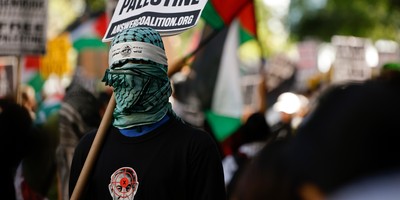Monday's attacks on Moscow's subways provide an odious reminder of the Russian empire's post-Cold War instability and the Russian government's severe internal challenges.
As this column goes to press, no organization has claimed responsibility for the attacks that left 39 dead and scores wounded, though Russian commentators and international analysts suspect Islamist-inspired separatists in the northern Caucasus region planned and executed the terror strikes.
Russian security forces are fighting guerrilla and terrorist cells based in troubled Caucasus political fragments like Dagestan, Ingushetia and Chechnya. Islamist separatist groups from these areas have used "the woman-delivered weapon" in previous attacks on Russian targets, and surveillance imagery, survivor testimony and forensic evidence confirm female suicide bombers conducted the subway attacks.
Last month, Doku Umarov, a senior Chechen separatist leader, promised to wage war in Russia's cities. His threat, as provided by Russian media, is chilling -- and charged with a political message: "Blood will no longer be limited to our cities and towns. The war is coming to their cities."

Umarov refers to himself as the emir of a future Islamist "Caucasus Emirate" ruled by sharia law (with him as the chief interpreter, of course). His rhetoric and self-proclaimed title suggestively connect to Osama bin Laden's goal of establishing a "global caliphate" after infidel powers are defeated.
Umarov's recent threat is an old threat revived, and Russian security officials fear the subway bombings could signal a new wave of terror attacks targeting major Russian cities. In September 1999, Moscow suffered a series of bomb attacks on residential buildings. In February 2004, terrorists bombed a Moscow subway and murdered 40 people. Other attacks followed, with the Beslan school massacre (September 2004) the most tragic. Islamist separatists proclaimed they were "waging war" in Russia's heartland and hinterland.
Recommended
In November 2009, operatives connected to Umarov blew up a train on the Moscow-St. Petersburg route. Killing Russians may have been the immediate goal, but that attack demonstrated the separatists also pursue economic and military objectives. The attack sent the message that Russia's extended transportation networks remain vulnerable.
Russia's vast size makes patrolling rail lines difficult. Pipelines (that transport gas and oil) are also easily disrupted. Pipeline attacks have immediate economic consequences, within Russia and for Russia's European trading partners. Protecting rail and pipelines requires additional personnel and equipment, and Russian security forces claim they are already stretched thin.
Sowing fear among Russian citizens obviously has political goals, but a reinvigorated Chechen insurgency is a direct challenge to Russian Prime Minister Vladimir Putin. Everyone knows Putin is Russia's real leader, not President Dmitri Medvedev. For the past two years, Putin has been perfecting the role of "backroom czar."
Putin played a central role in Russia's response to the Chechen Islamists' attacks on Dagestan in 1999 and the terror assaults on Moscow. By spring of 2000, Russian security forces had taken Chechnya's capital, Grozny. Russian troops pursued rebel factions into the hills. Putin became a Russian nationalist hero, a "hard man" in the mold of leaders long respected in Russia. This "Second Chechen War" went far better than the Russians' war in Chechnya from 1994 to 1996.
When he became president, Putin promised the Russian people security -- after all, he had demonstrated his prowess and iron will in the Caucasus wars. He demanded a quid pro quo: The Russian people would have to accept less political freedom.
The wars, however, didn't end. They simmered. The authoritative Russian website Caucausian Knot (www.eng.kavkaz-uzel.ru) calculated that Russian internal security forces killed 436 "suspected militants" in Ingushetia, Dagestan and Chechnya in 2009.
One of Monday's subway bombs struck Moscow's Lubyanka stop, near the headquarters of the Russian Federal Security Service (FSB). The FSB is the Cold War's KGB, renamed and ever so slightly reborn. Vladimir Putin is a former KGB agent. The Moscow Times, however, warned that the attack on Lubyanka was more than iconic or a tweak of Putin. FSB commandos recently killed a senior Islamist rebel.
What will Putin's government do? New elections are set for 2012. Putin may want to run for president again. Expect an even bloodier Third Chechen War.

























Join the conversation as a VIP Member